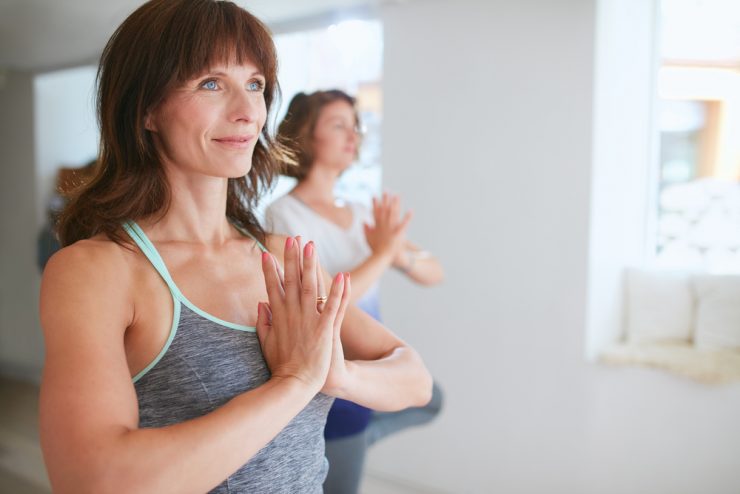The hormonal ups and downs in the years leading up to the menopause, known as the perimenopause, can take some women by surprise.
Editor Jane Garton looks at what to expect and some lifestyle tweaks to help make this important transition in life as easy and smooth as possible.
WHAT IS THE PERIMENOPAUSE?
As women go through their 40s into their 50s their fertile years come to an end and levels of the female hormones oestrogen and progesterone, which control the menstrual cycle, start to dwindle. Periods become less frequent with longer intervals between each one until they finally stop, signalling the start of the menopause.
These years leading up to the menopause are known as the perimenopause and during them women may start to feel the effects of the changing levels of oestrogen such as hot flushes, night sweats, fatigue, foggy brain, mood swings and vaginal dryness. Oestrogen is also needed to keep bones and hearts healthy, so as levels drop health problems such as cardiovascular disease and osteoporosis become more of a risk.
Some women sail through the perimenopause with just a few hot flushes while for others the road is rockier, but the good news is if you don’t want to go down the HRT route there are plenty of natural alternatives worth exploring.
TWEAK YOUR DIET
Some foods can make hot flushes worse and should be avoided or at least cut back on, especially at night. These include coffee, alcohol, spicy food and chocolate. Other foods to watch out for are those high in saturated fat such as red meat, dairy and fast foods as they may raise cholesterol as well as the risk of heart disease.
On the other hand, foods that are high in phytoestrogens (plant chemicals similar to natural oestrogen) can help to ease symptoms. Think soya, tofu, flax, lentils, pumpkin, sunflower or sesame seeds and green beans. Alternatively, you may like to consider taking a phytoestrogen supplement.
SUPPLEMENT IT
Taking a good multi vitamin and mineral designed specifically for this time of life will ensure you get a bit of everything. It should include good levels of antioxidants like vitamin A and vitamin E and the minerals zinc and selenium (to help slow the ageing process), B vitamins (for anti-stress and energy), vitamin D3, calcium, magnesium and boron (all good for bone health) and chromium (for blood sugar balance).
TRY HERBAL REMEDIES
Herbal remedies are another good natural alternative for managing symptoms. Good choices include soya isoflavones, black cohosh, agnus castus, sage leaf extracts, dong quai and red clover. St John’s wort may help to lift the spirits.
STAY ACTIVE
Research suggests that physically active women may have fewer hot flushes, night sweats and sleep problems than their more sedentary peers. Regular exercise can also help to boost mood and protect against mild-to-moderate depression.
Aerobic exercise such as cycling and walking is good for the heart and burning calories, while strength training such as working out with dumb bells and weight machines is good for muscles and bones. Pilates and yoga helps maintain flexibility while pelvic floor exercises help protect against urinary incontinence.
























I as well as my guys were actually digesting the good ideas from your web site then at once I had a terrible feeling I never expressed respect to you for those secrets. The men ended up for that reason warmed to read them and have really been enjoying them. Appreciation for actually being quite kind as well as for making a decision on certain amazing subject matter most people are really wanting to be informed on. My sincere regret for not expressing gratitude to you earlier.